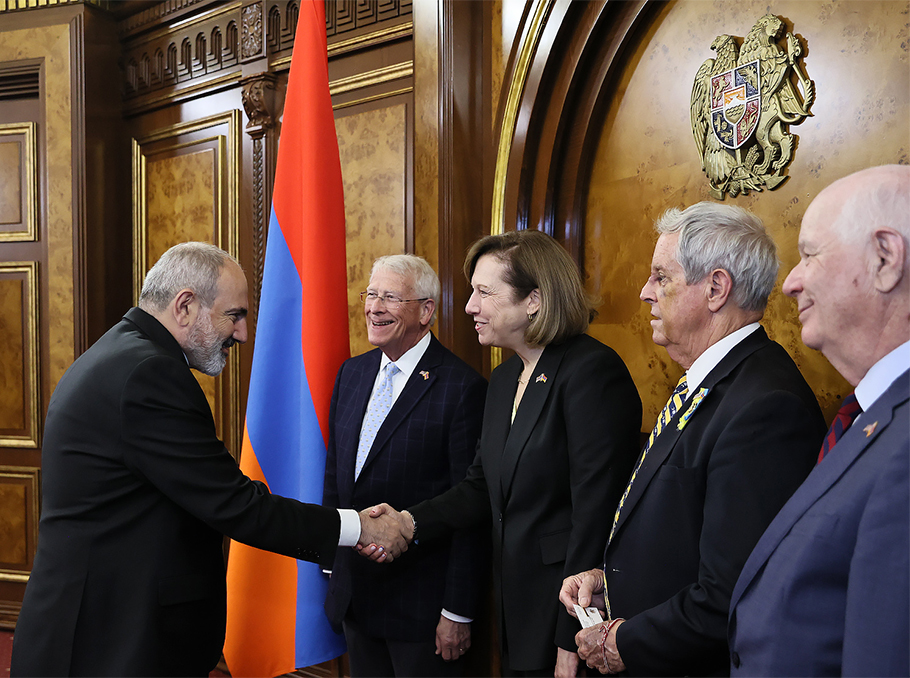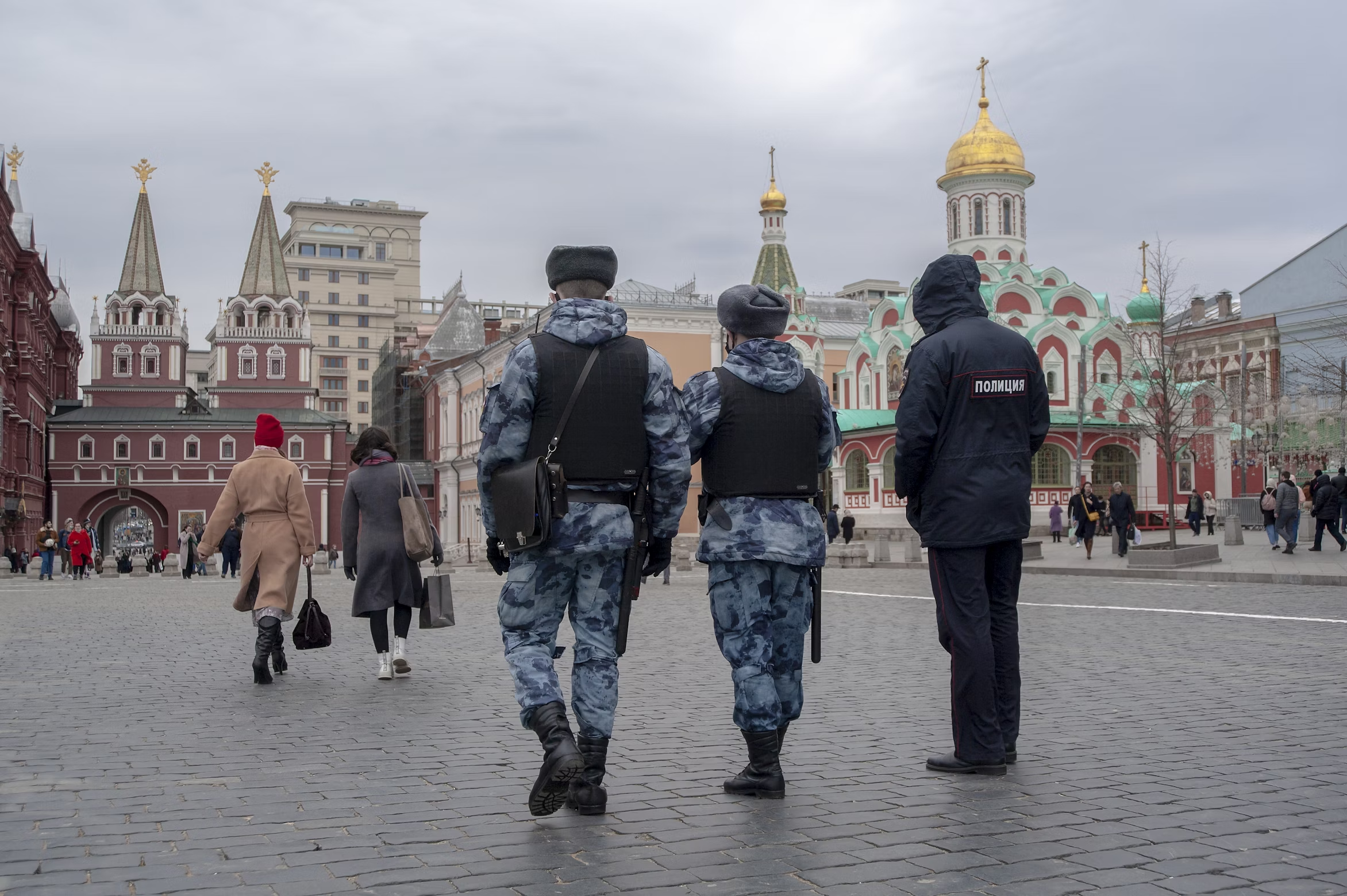Most Foreign Service officers (FSOs) associate details to Capitol Hill with Pearson Fellowships, which enable FSOs to gain invaluable legislative branch experience by working in a Congressional Office. Less well known is the senior advisor position at the Commission on Security and Cooperation in Europe (CSCE), a.k.a. the “Helsinki Commission.”
CSCE is a unique institution. It was established by Congress in 1976 to implement the 1975 “Helsinki Final Act,” a seminal document addressing traditional security and economic concerns while stipulating fundamental commitments to human rights were integral to a comprehensive view of security in Europe. Among its initial signatories were 35 countries in Europe and Eurasia, including the Soviet Union, as well as the United States and Canada. “Helsinki” or the “spirit of Helsinki” was widely seen as the first thaw in the Cold War. Helsinki monitor groups sprang up throughout the Soviet Union and in Warsaw Pact satellites to hold governments accountable for endemic violations of human rights commitments.

During a Congressional delegation visit to the Soviet Union in 1975, New Jersey Congresswoman Millicent Fenwick was so moved by her discussions with dissidents and Jewish refuseniks that she introduced legislation establishing a bipartisan Commission on Security and Cooperation in Europe. Fenwick took this bold step over the strenuous opposition of the Kissinger-era Department of State, which saw the legislation as usurping executive branch authority and objected to human rights-centered diplomacy. CSCE was empowered to monitor adherence to Helsinki Final Act commitments, giving Congress a larger role to play in foreign policy.
Today, the Helsinki Commission—comprised of nine senators and nine representatives from both parties as well as three executive branch commissioners (from the Departments of State, Defense, and Commerce)—continues its strong advocacy for human rights, security, and economic cooperation among the 57 participating States of the Organization for Security and Cooperation in Europe (OSCE), the institutional successor of the post-Helsinki Final Act Conference on Security and Cooperation in Europe.
CSCE has a symbiotic relationship with the Department, with both a commission staffer embedded in the U.S. Mission to the OSCE (USOSCE) in Vienna and, since its inception, a senior FSO detailed to the commission’s professional staff to enhance cooperation between the legislative and executive branches. The Department’s Senior Advisor to the Helsinki Commission Demitra Pappas came to the latter position in September directly from USOSCE where she had been the arms control counselor, representing the United States in OSCE’s main political-military body, the Forum for Security Cooperation. In her new capacity, Pappas serves as a conduit between the Department and the Helsinki Commission, maintaining that vital link with Congress, which includes Helsinki Commission staff joining U.S. delegations to OSCE multilateral meetings. As with the Helsinki Commission, Russia’s war on Ukraine became OSCE’s singular focus in the lead up to the February 24 full-scale war, and has remained so in the past year.

The detail to the Helsinki Commission position provides FSOs with up close experience and exposure to events such as the Ukraine war. For Pappas, the journey began from her first day, as a regular stream of non-governmental organizations (NGOs) and other frontline actors, as well as Ukrainian officials, sought out the commission staff to tell their stories. At Pappas’ first congressional hearing, CSCE called a single witness, “Taira,” a Ukrainian medic captured by Russian forces in Mariupol last spring who provided a harrowing firsthand account of the fall of the city and her subsequent detention and torture. At an OSCE human rights meeting in Warsaw in September, the commission organized a side event on political prisoners with the Ukrainian NGO “Center for Civil Liberties,” which was subsequently awarded the Nobel Peace prize along with the Russian NGO Memorial and Belarusian activist Ales Bialiatsky. Another commission side event in Warsaw on “De-colonizing Russia” focused on the national minorities that Russia now exploits as cannon fodder in the Ukraine war. That particular subject deeply rankled Kremlin propagandists and Russian officials, who accused the commission of seeking to dismember Russia.
This was not the first time CSCE drew the Kremlin’s ire. The commission authored the iconic Magnitsky Act, and many of the staff are persona non grata in Russia.
Pappas says her CSCE colleagues do not shy away from pushing the often self-imposed limits of U.S. policy. “For an FSO, it is refreshing to think outside the bureaucratic box and not be beholden to the interagency clearance process.”
Currently, commission staff convene hearings and briefings on all aspects of the war in Ukraine and draft related legislation as well as articles and reports. While the commission chair—Sen. Ben Cardin—will revert to the House in the new Congress, the commission will continue to serve as a bipartisan bulwark of solidarity for Ukraine.

Engaging in “parliamentary diplomacy” through Congressional delegations to meetings of the OSCE Parliamentary Assembly (PA) is another important aspect of CSCE’s work. The PA convenes annual meetings in participating States and issues political declarations on States’ adherence to Helsinki commitments. OSCE PA has provided a platform of solidarity with Ukraine by building relationships among like-minded parliamentarians, with more flexibility than the consensus-based OSCE to denounce what are decried as Russia’s “clear, gross and uncorrected” violations of the Helsinki Final Act.
CSCE Commissioner Rep. Steve Cohen was named OSCE PA’s first special representative on political prisoners and uses the commission’s megaphone to advocate for their release.
Commission staff, as well as commissioners and Department advisors, also regularly serve as election observers in other OSCE participating States. During the November midterm election, the United States received the largest ever OSCE PA election observation mission with representatives from 40 countries.
Pappas reflected on the singular nature of this detail position.
“This position is a unique opportunity within the Department for a Foreign Service officer to acquire knowledge of the legislative branch, and its activist role in defense of human rights and international security, as well as to experience diplomatic relations amongst legislative representatives from different countries, and observe foreign elections up close,” she said.
Demitra Pappas is the senior advisor at the Commission on Security and Cooperation in Europe.










